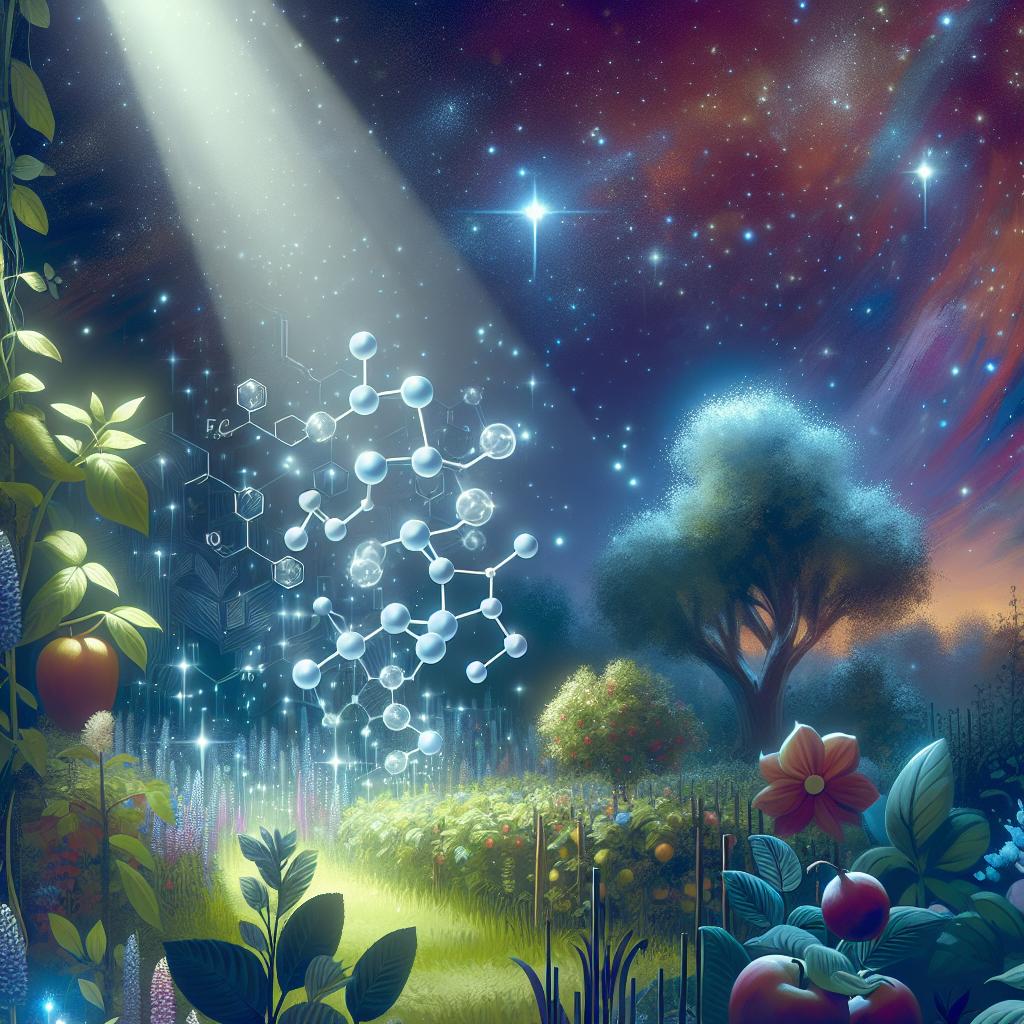
Sugar Discovery from Above: Unveiling the Divine Design
Published: 13 June 2024
Do Sugars from Space Prove Evolution?
The discovery of sugars in meteorites has been touted as evidence for chemical evolution and the origin of life. However, when we examine this claim from a biblical perspective, we find that it falls short. In this article, we will explore eight key questions related to sugars from space and their implications for evolution. Through a thorough examination of the evidence, we will see that the presence of sugars in meteorites does not prove evolution but instead points to the handiwork of a Creator.
1. What is the origin of sugars found in meteorites?
The sugars found in meteorites are believed to have an extraterrestrial origin. Researchers analyzing carbonaceous chondrites, a type of meteorite rich in organic molecules, detected small amounts of various sugars. The most abundant sugar found was a three-carbon sugar called glycerol. These sugars are not commonly found in living organisms on Earth, which suggests that they were not the result of biological contamination.
2. How do scientists interpret the discovery of sugars in meteorites?
Scientists who hold to an evolutionary worldview interpret the discovery of sugars in meteorites as evidence for chemical evolution and the origin of life. They see it as support for the idea that life could have originated from non-living chemicals through natural processes. However, it is important to note that this interpretation is influenced by their pre-existing belief in evolution.
3. Can the presence of sugars in meteorites be explained by natural processes?
While the discovery of sugars in meteorites is intriguing, it does not provide a plausible explanation for the origin of life through chemical evolution. Sugars are highly unstable and easily decompose or react with other chemicals. Furthermore, living organisms require specific homochiral sugars with the same "handedness," while the sugars found in meteorites would not have exhibited this property.
4. Do trace amounts of sugars in meteorites support chemical evolution?
The fact that the sugars found in meteorites are present in only trace amounts is significant. It demonstrates that under natural conditions, even in the frozen depths of space, only minimal quantities of these compounds are formed. This raises doubts about the feasibility of chemical evolution producing the complex and abundant sugars necessary for life.
5. Can sugars from meteorites contribute to the formation of DNA or RNA?
Even under highly controlled laboratory conditions, there is no plausible method for the sugar ribose to join essential building blocks needed for DNA or RNA formation. The tendency is for long molecules to break down into their building blocks rather than forming complex structures like DNA or RNA. Therefore, the discovery of sugars in meteorites does not provide a convincing pathway for the formation of genetic material.
6. Is the information stored in DNA or RNA enough for life?
DNA and RNA by themselves do not constitute life. While they store genetic information, this information is meaningless without elaborate decoding machinery to translate it into amino acid sequences. The instructions encoded in DNA must be read and translated into functional proteins by complex cellular machinery. The existence of this intricate decoding system points to the need for an intelligent designer rather than blind and purposeless chemical processes.
7. Does the discovery of sugars in meteorites challenge evolutionary assumptions?
The discovery of sugars in meteorites challenges some assumptions of chemical evolution. The wide variety of compounds found in these meteorites, most of which are irrelevant to life, raises doubts about the plausibility of natural processes producing the specific molecules necessary for life's origin. Additionally, the instability of sugars and their limited abundance further undermines the idea that chemical evolution could generate the complex chemistry required for life.
As Christians, we should approach the discovery of sugars in meteorites with discernment and a biblical worldview. While the presence of sugars in meteorites is interesting from a scientific perspective, it does not provide evidence for chemical evolution or the origin of life. Instead, it highlights the intricate design and complexity of life that points to an intelligent Creator.
In conclusion, the discovery of sugars in meteorites does not prove evolution but rather raises questions about the feasibility of chemical evolution. The limited abundance, instability, and lack of relevance to life of these sugars challenge the assumptions of naturalistic explanations for life's origin. As Christians, we can affirm that the existence of sugars in meteorites reflects the handiwork of a Creator who designed the universe and all that it contains.
